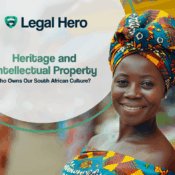
Celebrating Mandela Day: Injustice Survival: The Acumen of Constitutional Rights
Koma Ramontja is a PhD candidate in Law at the University of Lesotho (NUL), with over two decades of experience in labour, commercial, and civil law. He holds a Master of Laws (LLM) in Labour Law from the University of South Africa (UNISA), an LLB and B.Iuris from the University of Limpopo (UL), as well as qualification certification in Financial Planning, Human Resource Management, and Labour Relations. He is a practicing attorney and Managing Director of Koma Ramontja Attorneys Inc. His research focuses on employment law and pension reform, with recent work published in the South African Mercantile Law Journal (2024). He has presented issues of law in a number law conferences and member of the South African Board for People Practices (SABPP) and the Black Lawyers Association.
1. Introduction
The word injustice refers to an act that inflicts undeserved hurt to another or violation of one's rights. Life for the majority of black African people under colonisation and apartheid was brutal and unthinkable. This injustice behaviour was defined by the system of apartheid, a legal and social system of racial segregation and discrimination that systematically disadvantaged the Black majority. This system, enforced for decades, penetrated all aspects of life, including where people lived, where they worked, the education they received, and their access to resources and opportunities. The legacy of apartheid continues to impact South Africa today, manifesting in significant socioeconomic disparities and persistent inequalities.
2. Protection of Fundamental Rights
Chapter 2 of the South African Constitution is the Bill of Rights. It outlines the fundamental rights and freedoms that all individuals in South Africa are entitled to, and it is considered the cornerstone of the country's democracy.
Nelson Mandela is widely regarded as a good leader due to his unwavering commitment to justice and his ability to inspire reconciliation after decades of apartheid in South Africa. He successfully led the African National Congress (ANC) and played an important role in negotiating an end to apartheid, paving the way for the country's first democratic elections in 1994. His leadership extended beyond politics, as he became a symbol of global hope and reconciliation, inspiring people worldwide to fight for justice and equality. In his speeches, Nelson Mandela emphasized several key constitutional rights, particularly focusing on equality, freedom, and dignity, which he believed were essential for a just and democratic South Africa.
2.1 Equality
Emphasis is on the principle of equality before the law. In that all citizens should have the same rights and opportunities, including the right to participate in government and the justice system. He imagined a society where the rule of law protected everyone equally and where past injustices were addressed.
2.2 Freedom
2.2.1 Freedom of expression: This includes the right to voice opinions and beliefs without fear of reprisal, including freedom of the press and academic freedom.
2.2.2 Freedom from discrimination: The right to be treated with dignity and respect, regardless of race, gender, or other characteristics.
2.2.3 Freedom and security of the person: The right to be free from arbitrary arrest or detention and to have one's dignity protected.
2.3 Dignity:
Nelson Mandela often spoke about the importance of restoring human dignity, which had been systematically violated under apartheid. He believed that a just society would ensure that all citizens felt valued and respected.
2.4 Multi-ethnic Democracy:
Mandela's vision extended beyond individual rights inclusive of the broader concept of a multi-ethnic democracy. He advocated for a society where different cultures and communities could coexist peacefully and where all citizens had a voice. These principles were the foundation of his vision for a new South Africa and were central to the design of the post-apartheid constitution. He believed that these rights were essential for building a society based on reconciliation, justice, and lasting peace.
It is an unpleasant situation that the South African peaceful democratic dispensation finds itself as a point of contention, dealing with the discussions focusing on land claims, the role of affirmative action, and the broader issue of "white flight" from South Africa.
3. Conclusion
Mandela Day is an annual global celebration that takes place on 18 July to honour the life and legacy of Nelson Mandela. This day is a call to action for individuals, communities, and organisations to take time to reflect on Mandela's values and principles and to make a positive impact in their own communities.
As we celebrate the day, South Africans need to refrain from political biggaring and hate speech, to rather focus on building a unified nation. While our country has made strides in fostering unity and equality, challenges remain in addressing factitious language and harmful bragging.
Nelson Mandela speaking during Beyers Naude's 80th birthday, Johannesburg, South Africa, 23 May 1995 stated that:
“We must embrace one another on the basis of justice and nurture the extended family to which we all belong."
Our anthem's multilingual lyrics and fusion of musical styles highlight South Africa's commitment to inclusivity and bridging historical divides as we sing along together and say:
“Morena boloka setjhaba sa heso/O fedise dintwa la matshwenyeho/ O se boloke, O se boloke/ O se beloke Morena/ setjhaba sa heso/ Setjhaba sa South Afrika
God save our nation/ Bring an end to her pain/ Save her/ Save her/ Save us Almighty/ Save our nation/ Save and keep our South Africa.
Uit die blou van onse hemel/Uit die diepte van ons see (doom doom doom)/Oor ons ewige gebergtes/Waar die kranse antwoord gee.”



